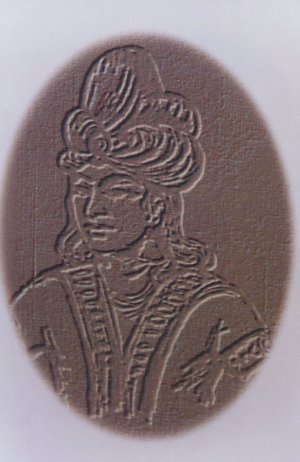Emperor Ashoka
First Online: April 17, 2000
Page Last Updated: December 07, 2024
Ashoka (also sometimes transliterated as "Asoka"), the grandson of Chandragupta -- the founder of the Mauryan dynasty --and the son of Bindusara, came to the throne circa 268 B.C. and died approximately 233 B.C. He is chiefly known from his series of rock and pillar inscriptions, which are found scattered in various parts of India and provide important information about his reign and policies. After eight years of rule, he waged a fierce war against the kingdom of Kalinga (Orissa of today) and was so horrified at the carnage he had caused that he gave up violence and turned to Buddhism.
In his efforts to propagate Buddhism, Ashoka built shrines and monasteries and inscribed Buddhist teachings on rocks and pillars in many places. He sent missionaries to countries as remote as Greece and Egypt; his own son, a monk, carried Buddhism to Sri Lanka, where it is still the major religion. Despite Ashoka's vigorous exertions of faith, he was tolerant of other religions. The empire enjoyed remarkable prosperity during his reign.
Some Indian historians think that his policy of peace led to the downfall of the Mauryan empire, which fell apart after his death. He was soon largely forgotten by Indian tradition and only remembered in Buddhist circles as a great patron of the faith. With the deciphering of his inscriptions during the 19th century, he took his rightful place in world history as one of the most benevolent rulers of antiquity.

King Ashoka was responsible for a number of Buddhist monuments
The splendid monolithic stone pillars on which many of Ashokan inscriptions are engraved, are among the masterpieces of Indian art, and the capital atop one of them, the Sarnath Pillar, inspired the use of back-to-back lions that is the Indian national emblem (shown in the picture above.) The 24-spoked Ashoka-chakra, which has found its way into the Indian national flag also a fine artifact of Ashoka's period.
K.L. Kamat/Kamat's Potpourri
Emperor Ashoka (B.C. 304-239)
Emperor Ashoka as a great ruler of India and as promoter of Buddhism holds an important role in the history of the world.
![]()
See Also:

